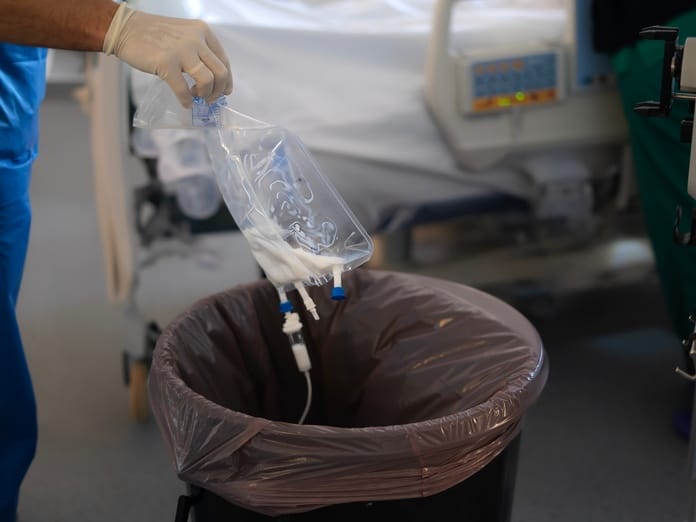Managing waste effectively is essential for medical professionals, considering the unique challenges of the industry. Improper waste disposal can lead to regulatory violations and environmental damage and threaten the safety of staff and patients. Here are hidden waste management risks in medical practices and practical ways to address them.
1. Improper Disposal of Hazardous Waste
Workers in medical practices often handle hazardous waste, such as needles, expired medications, and biohazardous materials. The improper disposal of these items can lead to environmental contamination or accidental injuries.
For example, sharps disposed of incorrectly can result in needlestick injuries, while chemicals in medications can leach into soil and water when sent to landfills. Implementing new disposal protocols and staff training can minimize these risks and comply with medical industry regulations.
2. Mishandling Confidential Waste
Medical records and prescription labels contain sensitive patient information that requires secure disposal. Mishandling this data risks privacy violations and legal fines. Certified shredding and data destruction services can help medical professionals manage confidential waste responsibly. This approach not only protects patients but also shields practices from reputational damage.
3. Ignoring X-Ray Film Waste
Old X-ray films can be tricky to dispose of. They may contain silver, which can harm the environment if discarded improperly. Recycling X-ray films is an effective way to reduce waste while recovering silver. Recycling these images also complies with privacy laws by destroying patient data on the films.
4. Overlooking Pharmaceutical Waste
Expired or unused pharmaceuticals are common in medical practices, and they can pose risks if not handled correctly. When flushed or thrown in regular waste bins, pharmaceutical residues can contaminate water supplies and harm aquatic ecosystems. Partnering with licensed medication disposal services is a simple way to mitigate this risk while complying with disposal regulations.
5. Underestimating Electronic Waste
Technological upgrades are a regular occurrence, and electronic waste, such as outdated medical devices, often piles up. These items contain hazardous elements—mercury and lead—that can seep into the environment if discarded improperly. Certified E-waste recyclers will dispose of electronics in an environmentally safe manner and provide documentation for audit purposes.
Uncover and Address Hidden Risks
Identifying and mitigating hidden waste management risks in medical practices is essential for industry compliance and operational safety. By addressing these challenges and partnering with specialized waste management services, medical practitioners can protect the environment, comply with regulations, and promote sustainability within their operations.







